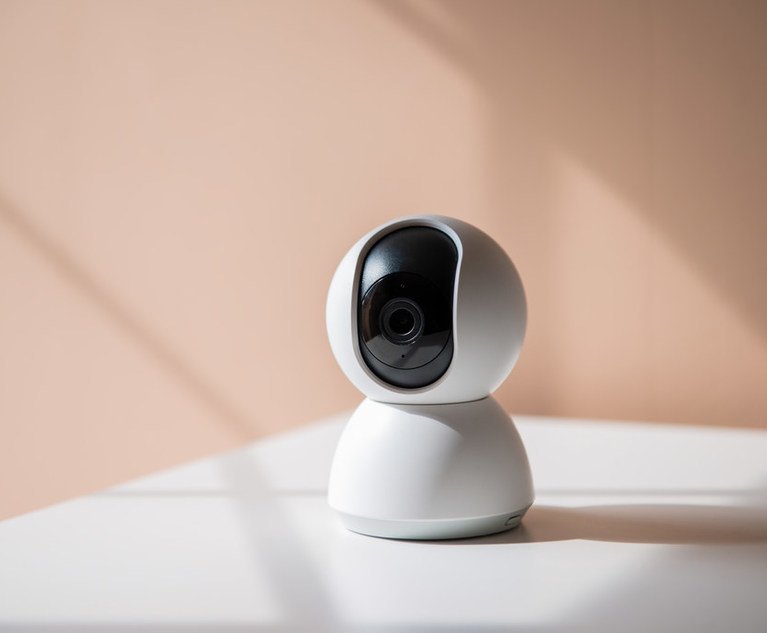 Credit: Rufino/Adobe Stock
Credit: Rufino/Adobe Stock NJ Supreme Court Weighs Recordings and Presence of Third Parties at Defense Medical Examinations
Where the court departed from the Appellate Division was the latter's determination that the defendants bore the burden of demonstrating why a neutral third-party observer or an unobtrusive recording should not be permitted.
July 21, 2023 at 10:00 AM
8 minute read
In DiFiore v. Pezic, A-58/59/60 September Term 2021, 087091, the New Jersey Supreme Court, in a unanimous opinion authored by Justice Rachel Wainer Apter, addressed whether a plaintiff has the right to record or have a third-party present for a defense medical examination (DME). (In DiFiore, the author argued as amicus on behalf of the National Employment Lawyers Association of New Jersey.) In overruling the central tenet of the Appellate Division's holding—which was that the plaintiff bore the burden "to show special reasons why third-party observation or recording should be permitted"—the Supreme Court restored, at least in part, the judicial framework previously established by B.D. v. Carley, 307 N.J. Super. 259 (App. Div. 1998). Instead, the DiFiore court held that defendants bore the burden of demonstrating why a third-party observer or an unobtrusive recording should not be permitted.
Landscape Prior to the Appellate Division's Holding in 'DiFiore'
In Carley, the Appellate Division held that the plaintiff was permitted to make an audio recording of a psychological DME. In so holding, the court found that "the defense psychologist d[id] not have the right to dictate the terms under which the examination shall be held." The court determined that the plaintiff's "right to preserve evidence of the nature of the examination, the accuracy of the examiner's notes or recollections, the tones of voice and the like outweigh the examiner's preference that there be no recording device." In "explicitly overrul[ing]" Stoughton v. B.P.O.E., No. 2151, 281 N.J. Super. 605 (Law Div. 1995), the holding in Carley stood "for the proposition that a plaintiff need not show special reasons to justify recording a psychological examination or bringing counsel or a representative to a physical examination."
This content has been archived. It is available through our partners, LexisNexis® and Bloomberg Law.
To view this content, please continue to their sites.
Not a Lexis Subscriber?
Subscribe Now
Not a Bloomberg Law Subscriber?
Subscribe Now
NOT FOR REPRINT
© 2025 ALM Global, LLC, All Rights Reserved. Request academic re-use from www.copyright.com. All other uses, submit a request to [email protected]. For more information visit Asset & Logo Licensing.
You Might Like
View All
'Younger and Invigorated Bench': Biden's Legacy in New Jersey Federal Court
5 minute read
Battles Won, Others Abandoned: 2024 Brought Big Change to the Judiciary
6 minute read
Will 2025 Bring a Change to Lawyers' Mandatory Pro Bono Duties Under 'Madden'?
7 minute read
Judges Push for Action to Combat Increasing Threats Against Judiciary
3 minute readTrending Stories
- 1Meet the Former NFL Player Now Back at Vinson & Elkins
- 2Inside Track: Cooley's Modest Proposal to Make Executives Safer
- 3Justified Termination Does Not Bar Associate Attorney From Unemployment Benefits, State Appellate Court Rules
- 4Effective Termination Strategies in Today’s Troubled Condo Market
- 5AI and Land Use—a Perfect Match in Real Estate Heaven
Who Got The Work
J. Brugh Lower of Gibbons has entered an appearance for industrial equipment supplier Devco Corporation in a pending trademark infringement lawsuit. The suit, accusing the defendant of selling knock-off Graco products, was filed Dec. 18 in New Jersey District Court by Rivkin Radler on behalf of Graco Inc. and Graco Minnesota. The case, assigned to U.S. District Judge Zahid N. Quraishi, is 3:24-cv-11294, Graco Inc. et al v. Devco Corporation.
Who Got The Work
Rebecca Maller-Stein and Kent A. Yalowitz of Arnold & Porter Kaye Scholer have entered their appearances for Hanaco Venture Capital and its executives, Lior Prosor and David Frankel, in a pending securities lawsuit. The action, filed on Dec. 24 in New York Southern District Court by Zell, Aron & Co. on behalf of Goldeneye Advisors, accuses the defendants of negligently and fraudulently managing the plaintiff's $1 million investment. The case, assigned to U.S. District Judge Vernon S. Broderick, is 1:24-cv-09918, Goldeneye Advisors, LLC v. Hanaco Venture Capital, Ltd. et al.
Who Got The Work
Attorneys from A&O Shearman has stepped in as defense counsel for Toronto-Dominion Bank and other defendants in a pending securities class action. The suit, filed Dec. 11 in New York Southern District Court by Bleichmar Fonti & Auld, accuses the defendants of concealing the bank's 'pervasive' deficiencies in regards to its compliance with the Bank Secrecy Act and the quality of its anti-money laundering controls. The case, assigned to U.S. District Judge Arun Subramanian, is 1:24-cv-09445, Gonzalez v. The Toronto-Dominion Bank et al.
Who Got The Work
Crown Castle International, a Pennsylvania company providing shared communications infrastructure, has turned to Luke D. Wolf of Gordon Rees Scully Mansukhani to fend off a pending breach-of-contract lawsuit. The court action, filed Nov. 25 in Michigan Eastern District Court by Hooper Hathaway PC on behalf of The Town Residences LLC, accuses Crown Castle of failing to transfer approximately $30,000 in utility payments from T-Mobile in breach of a roof-top lease and assignment agreement. The case, assigned to U.S. District Judge Susan K. Declercq, is 2:24-cv-13131, The Town Residences LLC v. T-Mobile US, Inc. et al.
Who Got The Work
Wilfred P. Coronato and Daniel M. Schwartz of McCarter & English have stepped in as defense counsel to Electrolux Home Products Inc. in a pending product liability lawsuit. The court action, filed Nov. 26 in New York Eastern District Court by Poulos Lopiccolo PC and Nagel Rice LLP on behalf of David Stern, alleges that the defendant's refrigerators’ drawers and shelving repeatedly break and fall apart within months after purchase. The case, assigned to U.S. District Judge Joan M. Azrack, is 2:24-cv-08204, Stern v. Electrolux Home Products, Inc.
Featured Firms
Law Offices of Gary Martin Hays & Associates, P.C.
(470) 294-1674
Law Offices of Mark E. Salomone
(857) 444-6468
Smith & Hassler
(713) 739-1250






